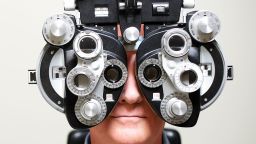Sign up for CNN’s Stress, But Less newsletter.?Our six-part mindfulness guide will inform and inspire you to reduce stress while learning how to harness it.
A diagnosis of depression in adulthood could more than double your risk of developing dementia in older age, according to a new study.
The study, published Monday in the journal JAMA Neurology, used data from more than 1.4 million Danish citizens who were followed from 1977 to 2018, said lead study author Dr. Holly Elser, epidemiologist and resident physician in neurology at the University of Pennsylvania.
People were identified as having a depression diagnosis or not and followed throughout the years to see who developed dementia later in life, the study said. Researchers adjusted for factors like education, income, cardiovascular disease, diabetes, substance use disorder and bipolar disorder.
The large dataset and numerous analyses researchers used made their findings strong and reliable, but the study is limited by the unavailability of information like genetic data, said Dr. Natalie Marchant, associate professor in the division of psychiatry at University College London. Marchant was not involved in the research.
Depression in late adulthood is often thought to be an early symptom of dementia, and many previous studies have connected the two, Elser said. But the latest study shows a connection between dementia risk and depression diagnoses in early and mid-life as well.
“Our results therefore provide strong evidence that depression is not only an early symptom of dementia, but also that depression increases dementia risk,” she said.
How are they linked?
Although the association between depression and dementia was shown to be strong, there are still questions the study does not answer.
“For example, there may be shared common risk factors for depression and dementia that occur earlier in the lifecourse, depression may increase dementia risk through alterations in levels of key neurotransmitters, or depression may lead to changes in health behaviors that in turn increase risk for dementia,” she added in an email.
“There is a clear need for future research that examines potential mechanisms that relate depression earlier in adulthood to subsequent onset of dementia,” Elser said.
Another piece of the results that could use further exploration is the stronger association found in men than women, Marchant said.
“This is an interesting finding, which I hope will be further explored,” she added in an email. “It lends support to the idea that we need to routinely consider risk factors for dementia in men and women separately because there may be different mechanisms involved.”
Why get treatment for depression
The double hit of depression and dementia may be scary, and you may be wondering – will getting treatment reduce my risk?
That isn’t yet clear.
The latest study looked at treatment with anti-depressant medication within six months of diagnosis and did not see a difference in risk between the treated and untreated groups, Elser said.
More research into if medication and cognitive behavioral therapy with different timing and duration is effective for lowering risk will be important moving forward, she added.
Preliminary findings from other observational studies show older adults who took part in therapy that reduced their symptoms of depression and/or anxiety also had a reduced risk of future dementia, Marchant added.
Because the studies were observational, however, researchers cannot say if the therapy caused there to be less cases of dementia, she added.
“Nevertheless, looking after your mental health is definitely still important for your well-being in the present,” Marchant said.
Regardless of dementia risk, treating depression should be a priority, Elser agreed.
“Because depression is extremely prevalent and is associated with significant individual and societal costs, effective treatment of depressive symptoms should be a priority regardless of whether they confer risk for dementia later in life,” she said.



